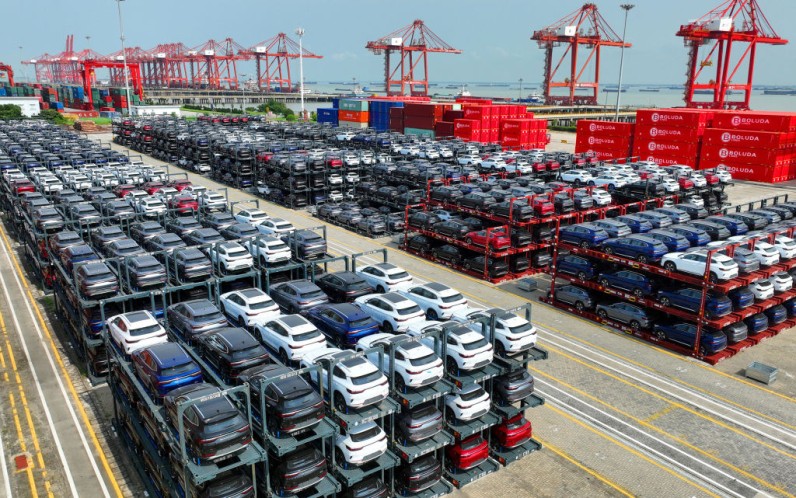
According to an official at a prominent Chinese auto industry organization, China's export growth of electric and plug-in hybrid cars has been slowed by 20-30% in recent months due to concerns about European tariffs.
To prevent what it saw as a possible deluge of improperly subsidized electric vehicles, the European Union imposed temporary tariffs of up to 37.6% on EVs manufactured in China last week. Additionally, in March, the EU enacted measures that allowed for the imposition of tariffs retroactively.
Temporarily Restricted
The China Passenger Car Association's (CPCA) secretary general, Cui Dongshu, warned on Monday, July 8, that there is a temporary constraint on exports of new energy vehicles (NEVs). Examples of NEVs include plug-in hybrids and electric cars.
He said the tariffs had a noticeable short-term effect of 20-30 percentage points on China's NEV export growth, as reported by Reuters.
Cui made his remarks after the CPCA's announcement that June saw a decline in domestic auto sales in China for the third consecutive month.
Slumping Exports
According to statistics, June saw an increase in NEV exports of 12.3% year over year, but they fell 15.2% from May. Additionally, compared to June 2023, NEV shipments accounted for 21% of overall automobile exports, a decrease of 3%. Even the China-made car exports of the American EV manufacturer Tesla hit a new low in April and June due to the EU's crackdown.
The domestic automobile market in China saw a 6.9% year-over-year decline in June, continuing a three-month downward trend as government incentives did not stimulate consumer demand amid a sluggish economic recovery.
The rate of decrease in passenger car sales, which had already dropped 2.2% in May and 5.8% in April, rose to 1.78 million.
Even though the Chinese government announced new incentives for trading cars in April, the price war that has been going on since 2023 has had less of an impact on sales in recent months.







Join the Conversation